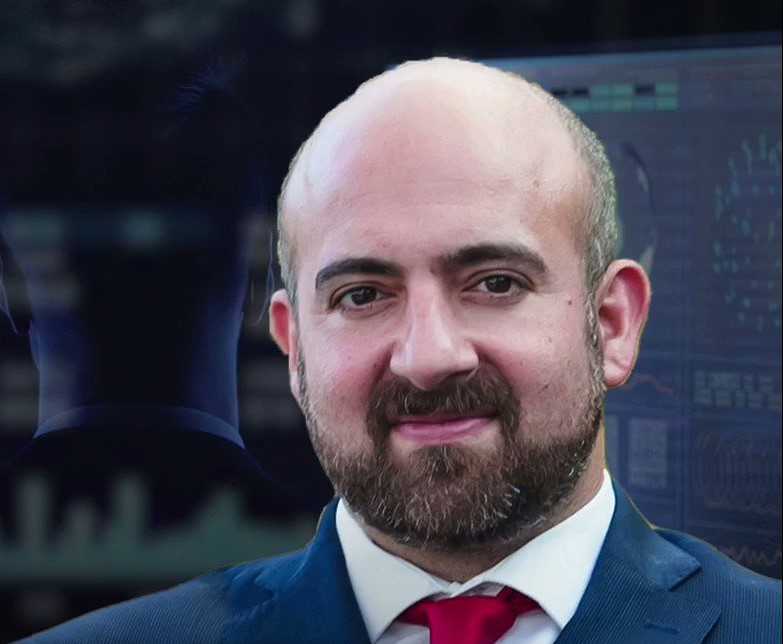Ran campaign against PM Modi in run-up to 2019 general elections, says Mike Benz, ex US diplomat.
NEW DELHI: Mike Benz, a former senior diplomat with the State Department of the United States of America, has claimed that biased elements in the US foreign policy establishment waged a campaign against Prime Minister Narendra Modi and the BJP in the run-up to India’s 2019 general elections.
According to Benz, despite PM Modi sharing excellent relations with then then US President Donald Trump, these elements within the administration, along with social media tech giants, influential think tanks and officials of the State Department were working together to paint PM Modi’s electoral success as the result of a “misinformation campaign”. The Sunday Guardian spoke to Benz. Edited excerpts:
Q: Can you share your professional background, including your stint with the State Department?
A: I was Deputy Assistant Secretary for International Communications and Information Technology at the US State Department from Fall 2020 through January 2021. I am the Executive Director of the Foundation for Freedom Online (FFO), a non-profit watchdog dedicated to protecting digital liberties and restoring the free and open Internet.
Previously, I was in charge of the cyber and “Big Tech” portfolios for the US State Department, where I served as Deputy Assistant Secretary for International Communications and Information Technology. That role included formulating and negotiating US policy on cyber issues as well as interfacing with private industry and civil society in the Big Tech space.
Prior to this, I served as a White House speechwriter for President Trump and advised on tech matters. Before that, I served as speechwriter to Housing and Urban Development Secretary Dr Ben Carson and was a policy adviser on economic development. Before my roles in the public sector, I practised business law for seven years as an attorney in New York, primarily representing technology companies and financial firms.
Q: Where were you posted and in what position when these alleged interferences occurred?
A: If you’re talking about US tech platforms interfering with the free flow of political information in India, that started before my time at the State Department. In late 2018/early 2019, the US-UK foreign policy establishment began a campaign to paint Modi’s political success as being the result of “misinformation” online. For instance:
BBC: Nationalism a driving force behind fake news in India, research shows (Nov 2018)
Time: How Volunteers for India’s Ruling Party Are Using WhatsApp to Fuel Fake News Ahead of Elections (January 2019)
Quartz: There’s no stopping fake news in India when the prime minister’s own app spreads it. (January 2019)
New York Times: India Has a Public Health Crisis. It’s Called Fake News. (April 2019)
The Atlantic: MISINFORMATION IS ENDANGERING INDIA’S ELECTION (April 2019)
“Misinformation” is a censorship predicate. When the US foreign policy establishment says a foreign country has a “misinformation crisis,” that is a cue to US tech companies to work with entities like the State Department’s Global Engagement Center or cut-out think tanks like the Atlantic Council’s Digital Forensics Research Lab or counter-misinformation USAID fundees to censor the “misinformation” in that foreign country.
Q: What was the modus operandi that was put in play?
A: They censored chat apps like WhatsApp because Modi supporters were spreading pro-Modi messages there.
Poynter Institute: Inside WhatsApp’s battle against misinformation in India (Dec 2018)
BBC: WhatsApp blocks two million Indian accounts (July 2021)
The US foreign policy establishment leaned on Facebook, which owns WhatsApp, very heavily to limit the amount of WhatsApp messages that could be shared, which would therefore limit the amount of pro-Modi content that could circulate in India (Modi supporters disproportionately shared content on WhatsApp).
Like here, you can see in January 2019 WhatsApp started limiting sharing in India explicitly to stop Modi’s “misinformation” sharing:
CNN: WhatsApp tightens limit on the number of people you can share messages with (Jan 2019)
When I was at the State Department, I saw all these same think tanks like the “Atlantic Council” were inundating me and my policy peers with recommendations to promote censoring “misinformation” abroad in so-called “nationalist” or “authoritarian” governments. Modi’s name was always circulated in lists that hit my inbox of places where US tech companies should be more aggressively engaged in “content moderation” (meaning censorship).
Q: Which tech companies were involved in this? And why were they doing it?
A: Facebook, WhatsApp, YouTube, Twitter, and probably others, but I do not want to speculate beyond that.
Q: Were the US government agencies, including the State Department, aware of this interference to defeat BJP and Modi?
A: That was not my direct portfolio, so I cannot answer that. It would be surprising to me if the State Department’s Global Engagement Center was not talking to and placing pressure on US tech company liaisons to facilitate censorship of Modi/BJP in India. The State Department keeps close tabs on social media influence of political parties and when they are hostile to a foreign leader, they tend to let US tech companies know early and often.
Q: During that time, President Trump, who has an excellent equation with Prime Minister Modi, was in power. So how do you explain this dichotomy? Was the State Department and other agencies working independently against their boss (Trump)?
A: Yes. Trump had very little influence over the rank-and-file of the State Department. There were many pockets of rogue factions that simply never accepted Trump’s foreign policy and did not even pretend to accept Trump was their boss.
Q: Did you come across any evidence that suggests other India-based political entities were coordinating with these tech companies in order to impact BJP’s and Modi’s poll campaign?
A: Not directly, it wasn’t my direct portfolio. But I’m sure you can look up all the little counter-misinformation companies that popped up in India and see to what extent they got State Department or USAID funding.
For example, entities like in this piece: https://www.messengerpeople.com/misinformation-in-india-whatsapp/ and those referenced in this lecture: https://www.youtube.com/watch?v=O5zWr6NQeHw

